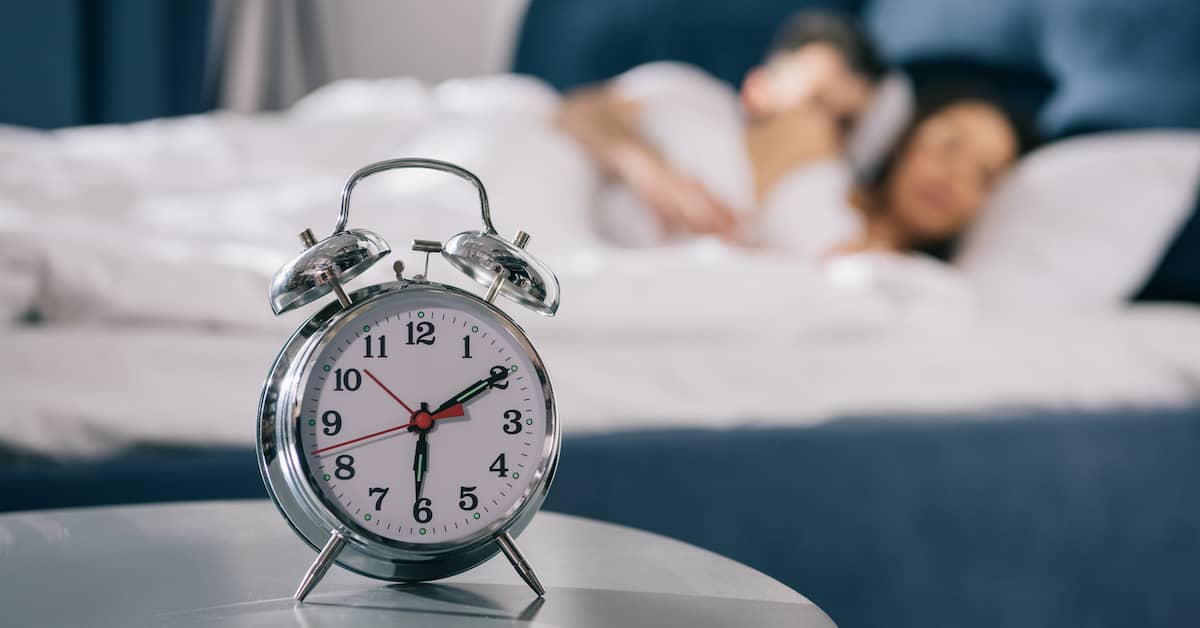
What if one of the most effective tools for protecting your mental health wasn’t a pill or a therapist, but simply your alarm clock? While it might sound too easy, new research suggests that the time you go to bed and wake up could play a critical role in safeguarding you from depression. And not just a little. We’re talking about risk reductions of up to 40%. How is that possible? The answer lies in the powerful connection between your body’s internal clock, genes, and mood.
Key Takeaways
-
Early risers have a significantly lower risk of depression. Those who go to bed and wake up earlier reduce their chances of developing major depressive disorder by 23–40%.
-
Your genes influence your sleep-wake preferences. Variants in the “clock gene” PER2 are linked to being a morning or evening person, and those with early-riser genetics have a lower risk of depression.
-
Shifting your sleep schedule earlier can improve mental health. Even moving your bedtime up by one hour can lead to a substantial drop in depression risk.
Resetting Your Alarm Could Reset Your Mental Health
At first glance, it seems far too simple.
How can the time you go to bed and get up in the morning have such a dramatic impact on your risk of a debilitating mental health condition like depression? And yet that’s just what an important new study suggests.
Depression, officially diagnosed as Major Depressive Disorder, is a persistent feeling of sadness that patients often experience together with other symptoms such as disinterest, fatigue, anxiety, slow thinking, poor concentration, memory decline, and more. Depression affects over 17 million adults in the U.S., and millions more teenagers and children.
Conventional treatment options include medication, psychotherapy, and brain stimulation techniques, but there's also an important aspect of the condition that's been overlooked.
I’m talking about the body's sleep-wake cycle.
What is Your Natural “Sleep-Wake Cycle”?
This cycle is determined by our circadian rhythm, the body’s internal biological clock.
An irregular circadian rhythm is known to be involved in several health problems, ranging from memory loss and heart issues to mood disorders. Researchers at the University of Colorado, Boulder (UCB) decided to investigate if a readjustment of the sleep-wake cycle could have an impact on depression.
Their trial involved 32,470 female nurses with an average age of 55 who were free from depression when the study began. The research team followed them for four years, during which 2,581 of these women were diagnosed with depression.
Researchers found that, among other things, many of the women who did not fall victim to depression had one thing in common.
Early Rising Wards Off Depression
The results, published in 2018, showed that "early risers" were up to 27 percent less likely to develop depression when compared to “late risers”.
The time we go to bed and get up in the morning could be, the researchers wrote, "a predictor of depression among mid-life and older women, independent of environmental and lifestyle factors."
To get a clearer sense of what is meant by being an early riser and whether it really can predict depression, the UCB team conducted another, far bigger, broad-ranging study, this time focused on genetics.
The Role of Genetics in Depression
Your genetics play an important role in your overall health and physical function. So it’s no surprise that the latest science shows that genetics explains between 12 to 42 percent of our sleep and waking preferences.
One gene, the so-called “clock gene” PER2, is known to be so influential that UCB researchers isolated it from genetic data on 840,000 individuals. Then they examined information from a different sample that included genetic information, medical and prescription records, and surveys about diagnoses of major depressive disorder.
In addition, 85,000 individuals wore sleep trackers for seven days, and another 250,000 completed a sleep-preference questionnaire. Of the latter group, about one in three identified as early birds while nine percent described themselves as night owls. The rest were in between.
On average, the volunteers went to bed at 11 p.m. and got up at 6 a.m., providing an average sleep midpoint of 3 a.m.
As the research team analyzed all this information, they hoped to answer a simple question. Do those with genetic variants that predispose them to be early risers also have a lower risk of depression?
The answer was an unequivocal “yes”.
Depression Risk Reduced by 23 to 40 Percent
The researchers found that each one-hour earlier sleep midpoint corresponded with a 23 percent lower risk of major depressive disorder.
In other words, if someone who normally goes to bed at 1 a.m. goes to bed at midnight instead and sleeps for the same amount of time, they could cut their risk of depression by 23 percent.
And if they go to bed two hours earlier at 11 p.m., they could cut it by about 40 percent.
The study's lead author, Lyas Daghlas, commented, saying, "...this study shifts the weight of evidence toward supporting a causal effect of sleep timing on depression.”
He continued, "We live in a society that is designed for morning people, and evening people often feel as if they are in a constant state of misalignment with that societal clock."
For those who'd like to shift to an earlier sleep schedule, fellow author Celine Vetter advises, "Keep your days bright and your nights dark. Have your morning coffee on the porch. Walk or ride your bike to work if you can and dim those electronics in the evening."
My Takeaway
My general health advice has always included regular sleep and wake times. This study further reinforces the importance of good sleep. After all, sleep is when your body repairs itself to ward off disease. And you don’t have to be a doctor to know that if you stay up too late, you don’t feel like yourself the next day, and your family and friends might comment on your “grouchy” demeanor.
Whether you’ve battled depression in the past or would like to avoid it in the future, going to bed at a reasonable hour and waking up early seems to me like a simple lifestyle habit to add to your regimen for better emotional health and a happier life.
Summary
A groundbreaking study from the University of Colorado Boulder has found a strong link between sleep timing and depression risk. Tracking over 800,000 individuals, researchers discovered that people who go to bed and wake up earlier have significantly lower rates of major depressive disorder. Genetics play a role too—variants in the PER2 “clock gene” influence whether someone is a morning or evening person. The findings show that even a one-hour earlier sleep midpoint can reduce depression risk by 23%, and two hours earlier can slash it by 40%. Experts advise maximizing morning light, limiting screen time at night, and making gradual shifts in bedtime to support mental well-being.
Frequently Asked Questions
How much earlier do I need to go to bed to reduce depression risk?
Shifting your sleep schedule just one hour earlier can reduce your depression risk by 23%; two hours can lower it by 40%.
Does the amount of sleep matter, or just the timing?
Both matter, but this study focused specifically on the timing, showing that earlier bedtimes (with adequate rest) are especially beneficial for mood.
>Can genetics influence whether I’m a morning or night person?
Yes, genetic differences—particularly in the PER2 gene—help determine your natural sleep-wake preferences.
What if I can’t fall asleep earlier?
Experts suggest using bright light in the morning, avoiding blue light at night, and making gradual changes to shift your circadian rhythm.
Is this advice only for women?
While the initial study tracked women, broader genetic research confirms the link between sleep timing and depression in both genders.
- Vetter, C., Chang, S. C., Devore, E. E., Rohrer, F., Okereke, O. I., & Schernhammer, E. S. (2018). Prospective study of chronotype and incident depression among middle- and older-aged women in the Nurses' Health Study II. Journal of psychiatric research, 103, 156–160.
- Marshall, L. (2021, May 27). Earlier sleep timing associated with lower depression risk. University of Colorado Boulder.
